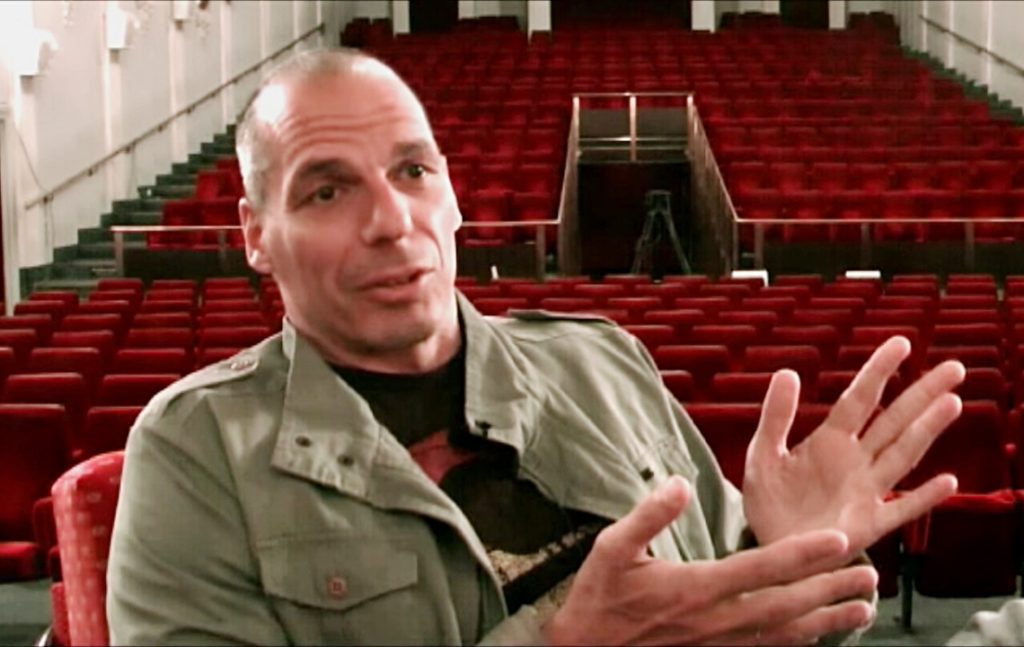Originally published at MintPress News.
AUSTIN, Texas — On Sunday, Swiss voters overwhelmingly rejected the idea of a universal income, under which every resident would receive a monthly stipend, regardless of their employment status.
Under the plan, every adult over 18 would have earned a monthly income of 2,500 Swiss francs (about $2,563). Children would have also received a monthly stipend. The funds to support the plan would have come from the profits of the lucrative Swiss banking industry.
Despite about 77 percent opposition to the plan in the wealthy nation, some experts on global capitalism maintain that it could someday become a reality in Switzerland and elsewhere.
“I believe that every child that gets born should have a minimum trust fund that allows that child to live in freedom, in dignity, and then to do what they can with their talents if they want more,” Greek economist Yanis Varoufakis said during an April discussion of basic income and the future of work at Gottlieb Duttweiler Institute, a German economic research think tank. His remarks are excerpted in a June 3 video from acTVism Munich, an independent media outlet.
“A rich country like Switzerland has the great opportunity to try out this wonderful experiment,” he said.
Varoufakis served as the Greek minister of finance for seven months before his opposition to devastating economic austerity measures forced his resignation. In February, he launched the Democracy in Europe Movement 2025, a political reform movement which opposes austerity.
Concern over increased automation in the workplace is boosting support for a guaranteed universal income.
“Conservative Switzerland is the first country to hold a national referendum on an unconditional basic income, but others including Finland are examining similar plans as societies ponder a world where robots replace humans in the workforce,” Silke Koltrowitz and Marina Depetris reported for Reuters on Monday.
Some studies have suggested that automation and computerized service could threaten nearly half of all jobs in the United States by 2025.

“Now there is the first juncture, since the 18th century, when it is highly likely that technological innovations are going to destroy a lot more positions for wage labor than it will create,” Varoufakis commented.
He described a grim future in which economic inequality increases out of control as the means of production are controlled by a smaller and smaller subset of the population:
[A] world in which the concentration of ownership over the newfangled means of production is going to lead to stagnating capitalism with intense inequality and huge quantity of income for a decreasing, shrinking percentage of the population that lives behind barriers, fences, electrified fences in privately policed communities, and the rest in a cesspool of volatility, uncertainty and social misery.
He suggested that a redistribution of wealth is the only humane alternative.
[I]f paid work shrinks, democracy must, in order to survive, generate a new model, where the ownership of the means of production, to use an old Marxist term, is distributed or at least the claims to the income from the means to production is redistributed in such a way as to effectively guarantee freedom.
… Freedom manifests itself in being able to say no, and still survive, and still prosper. And then if you say yes under those circumstances, it is a genuinely free choice. But this requires a basic income, which is essential for the outside options that bolster freedom.
acTVism Munich also excerpted remarks from a Jan. 6 conversation between Noam Chomsky and Zain Raza, acTVism Munich’s senior editor. Chomsky, a noted scholar, linguist, philosopher and activist, expressed cautious interest in the plan:
Actually that’s an interesting concept. It comes from the right wing originally. [Conservative economist] Milton Friedman proposed it, for example. From his point of view it was part of an effort to undermine welfare state measures. But it doesn’t have to have a reactionary component. It can be interpreted as something progressive.
Chomsky suggested a basic income would be a way to guarantee the human rights outlined under article 25 of the 1948 Universal Declaration on Human Rights, which states:
Everyone has the right to a standard of living adequate for the health and well-being of himself and of his family, including food, clothing, housing and medical care and necessary social services, and the right to security in the event of unemployment, sickness, disability, widowhood, old age or other lack of livelihood in circumstances beyond his control.
In a September op-ed for Truthout, economic analyst Aaron Vansintjan cautioned that such measures could increase global inequality if wealthy countries that implement universal incomes become more dependent on underpaid immigrant labor and exploiting the resources of the Global South. He noted:
Creating a more just world is hard work. To believe that one policy can, by itself, fix the economy is magical thinking. Every basic income proposal should be accompanied by a wide platform of complementary policies to address its potential negative effects, both within countries and outside of them.
Chomsky, who often envisions even more revolutionary change, such as a transition to a fully post-capitalist global economy, agreed that a guaranteed basic income is unlikely to solve all of humanity’s most pressing problems. “I don’t think it goes far enough, but as a short-term way of alleviating major problems, that’s fine,” he said.